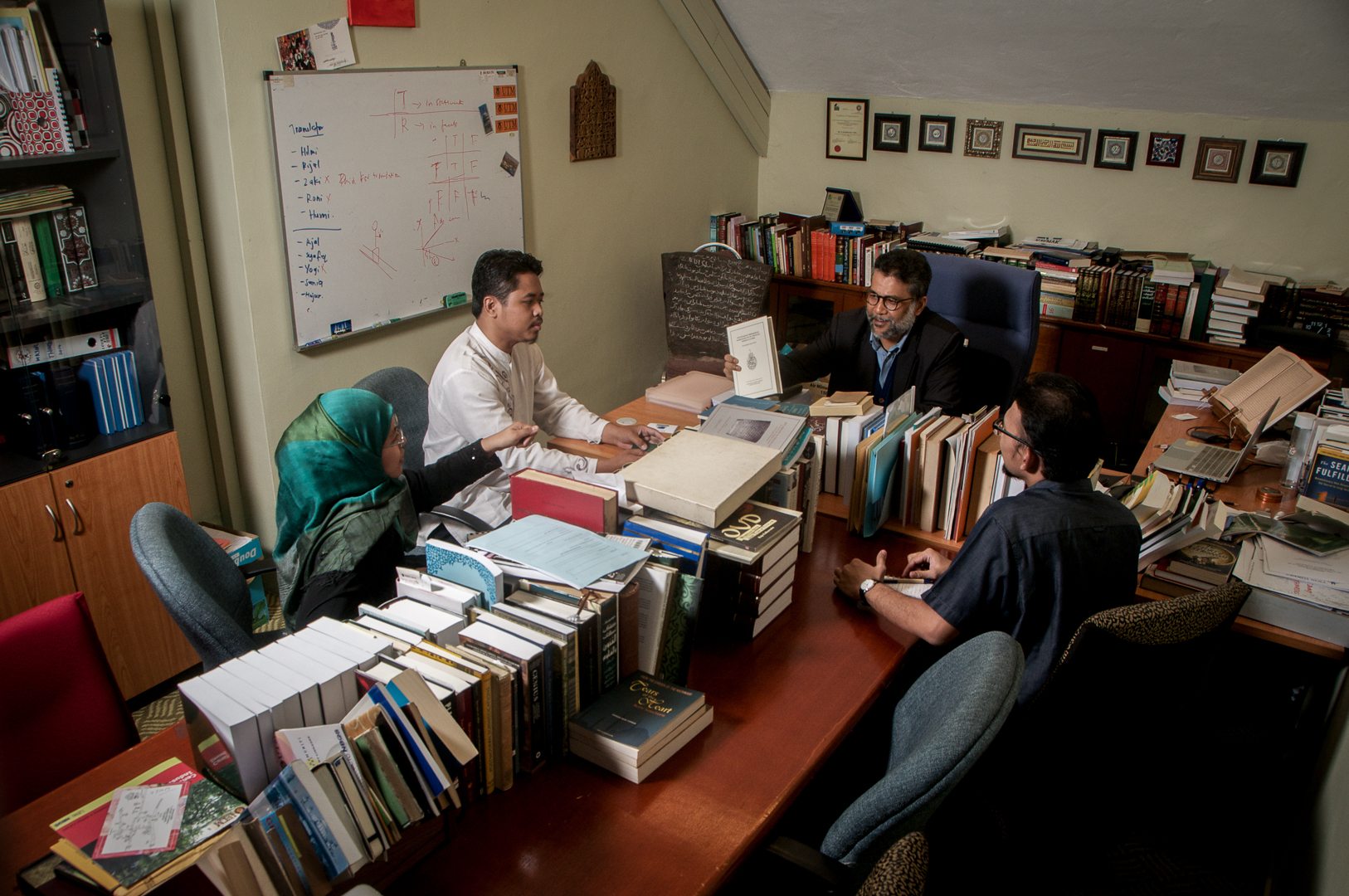
Since the concept of ‘faculty’ (quwwah) refers to a living being in whom the attribute of ‘knowledge’ subsists, and this knowledge is the governing principle of his thought and action, the university must have been conceived in emulation of the general structure, in form, function and purpose of man. It was meant to be a microcosmic representation of man –indeed, of the Universal Man (al-Insān al-Kullī).
Nilai mementingkan ilmu sebagai kebaikan utama, sumber segala kebaikan (yakni jika disertakan dengan kehendak gigih dan niat ikhlas) telah melahirkan sikap memberatkan pendidikan sebagai kaedah utama. Bagi diri dan masyarakat berbudaya ilmu, tujuan utama pendidikan bukanlah untuk mendapatkan pekerjaan bergaji lumayan atau melahirkan tenaga kerja cekap tetapi untuk menanam sikap memuliakan ilmu, menuntutnya dan terus menghayatinya seumur hidup.
Postgraduate Programs
CASIS offers two research programmes: Master of Philosophy in Islamic Civilisation, and Doctor of Philosophy in Islamic Civilisation. Both programmes are research-based, which means students are required to produce a thesis reflecting an academic work worthy of such degrees.
Program Structure
The Master and Doctoral Program offered by CASIS are a Research only by definition. But to ensure our students to follow and understand the philosophy of education promoted by CASIS, we provide pre-requisite coursework throughout the study. Students are required to take some courses with the HW (check the list of courses) status with the intention to complete and strengthen some fundamental understandings in order to ensure success in their research.
To find out more about our centre, please download our new brochure here.
Current Activities

“Knowledge and Islamic Creed in the Context of Contemporary Challenges”
One can see from most major works in this tradition, it begins with the importance of knowledge as a setting stage upon which other credal elements stand. As specified by Prof. Wan, this is indeed uniquely Islamic but nonetheless has been set to the background by paradigmatic misleading studies of some prominent Orientalists, and unfortunately their incorrect interpretation has also influenced some Muslim scholars. Prof. al-Attas, he said, has been consistently rejecting the allegations of those Orientalists particularly on their interest in creating parallelism between the development of Christian theology or Western thought and practices with those of Islam. This attitude, according to Prof. al-Attas, has become the natural inclination for Western man because they regard their own experiences and consciousness as those representative of the most ‘evolved’ of the species, and all others will only eventually realize what they have already experienced.
“Arriving at the Problem of Knowledge”
RZS-CASIS Saturday Night Lecture 10th Series with Prof. Dr. Wan Mohd Nor Wan Daud, Holder of Syed Muhammad Naquib al-Attas Chair of Islamic Thought 25th July 2020 "Arriving at the Problem of Knowledge" Transcribed Speech Transcribed by Arif Munandar...
No Results Found
The page you requested could not be found. Try refining your search, or use the navigation above to locate the post.


